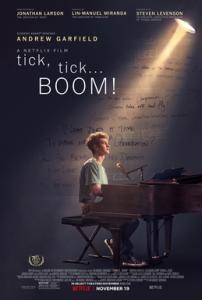I am reposting my review … the DVD came out today. REally too bad it was not nominated for an Oscar. One of the most important films of the year – the decade.
‘Waiting for Superman’
Davis Guggenheim got the idea for Waiting for “Superman” one day as he drove his kids to an expensive private school. He passed a downtrodden public school and wondered about kids who didn’t have a choice. The film’s concept was formulated in early 2008 and Waiting for “Superman” screened at the Sundance Film Festival last January where it won The Audience Award.
The film’s title comes from’ a comment made by Geoffrey Canada, founder and CEO of Harlem’s Children Zone, a consortium of three charter schools and other educational entities, for poor families. “One of the saddest days of my life was when my mother told me ‘Superman’ did not exist. ‘Cause even in the depths of the ghetto you just thought he was coming…. She thought I was crying because it’s like Santa Claus is not real. I was crying because no one was coming with enough power to save us.”
The film follows five children as they seek an authentic American public education. Daisy is a fifth-grader from Los Angeles; Francisco, a Bronx first-grader; Anthony, a fifth grader from Washington D.C.; Emily, is an eighth-grader in Silicon Valley and, unlike the others, from a economically sound family, and Bianca, is a kindergartner from Harlem. These children are determined, as are their parents. The kids all end up in actual lotteries for places in schools that have chosen children over everyone else. The film affirms parents of every social and economic class and region who work hard to prepare their children for school and support them, as well as teachers who do care. But the few stories about teachers who do not, are chilling.
I will tell you now that I was in tears at the end, happy for a few, but desperately sad for the many. I went to public school until my junior year in high school; I know what it was like to be “tracked.” We kids figured out that because my brother and I were in the same grade he got all advanced classes because he must have tested higher. I instead was in large, experimental 120-student “team classes” where I earned straight A’s on my history tests and papers and A-‘s in English. When my first quarter report card gave me a B+ in history with a comment that I had earned the highest mark in the class, I questioned it and was told that they graded “on the curve”. Without even asking my parents first, I marched out of class to the school office and demanded to be changed to advanced classes. The counselor said I could not do the work. I said, “Try me.” I was in 8th grade and made the National Honor Society the next year. That was public education in California in 1964 and, truth to tell, I remember all my teachers well and liked all of them. I was so lucky. It wasn’t the teachers; it was the system. The film’s premise is that today it’s pure chance for a child to get a good education.
Besides Geoffrey Canada, Waiting for “Superman” profiles Michelle Rhee, education reformer and School Chancellor of Washington, D.C., who took on the NEA for its role in maintaining the status quo by refusing to reframe contracts and teacher tenure. To be fair, the film also looks at restrictions placed on creative teachers by standardized testing and teaching-to-the-test.
Production notes given to film critics state that “Eight years into No Child Left Behind, the U.S. has four years left to reach the landmark education act’s goal of 100 percent proficiency in math and reading. Most states currently hover around 20 or 30 percent proficiency. Seventy perecent of 8th graders in the U.S. cannot read at grade level.”
As other workers in the early 20th century, public school teachers unionized because they were paid a pittance and had no benefits or rights. Now, however, the teacher unions function like any of those in the AFL-CIO (the NEA is an AFL-CIO union and the AFT is a partner) Teaching children is considered the same as a forty-hour a week job on the assembly line, office or in the restaurant industry. The definition of a teacher and of education needs to change because the current system is not working. Education has to be about students first, not teachers and school administrators and their benefits.
Rhee sums this up best when after the teacher union refused to vote on her proposal to remove automatic tenure from contracts and pay six-figure incomes to teachers who deliver, she said, “There’s this unbelievable willingness to turn a blind eye to the injustices that are happening to kids every single day in our schools in the name of harmony amongst adults.”
Is there anything we can do? The film tells viewers to celebrate teachers, ensure world class standards, invest in great schools (not great prisons), and raise literacy rates. Families and communities must let their voices be heard.
Davis Guggenheim has delivered another inconvenient truth, but no one can argue with the facts that this film illustrates so clearly. “Our system is broken, and it feels impossible to fix, but it can’t wait.”
Don’t miss this one, even if it seems a bit long at two hours. It’s classy and artfully produced. Stay through the credits and listen to the lyrics of the song “Shine” by six-time Grammy winner John Legend. Public education is everyone’s business. I usually advise responding, rather than reacting, to films. This film, produced under the banner of Paramount, Participant Media and Walden Media, calls for both. Check your local drop out rates and this will be proof enough.
Waiting for “Superman” releases on DVD Tuesday, February 15. For more information visit www.waitingforsuperman.com.












